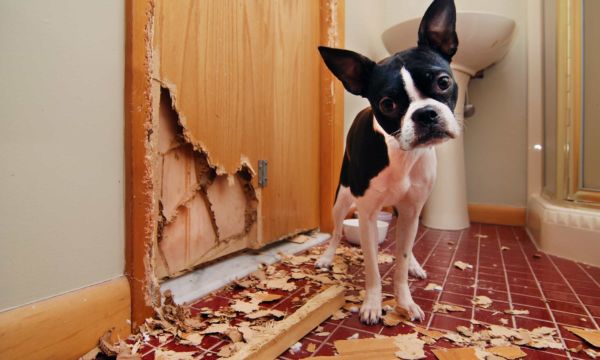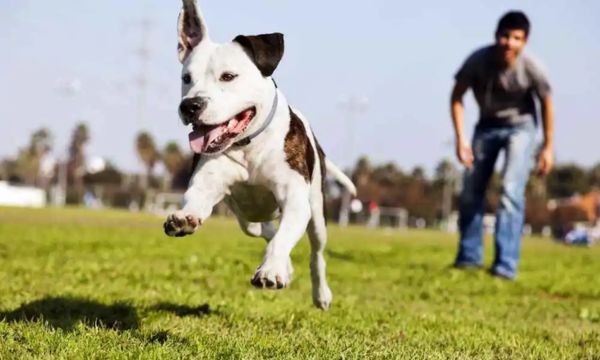Managing Separation Anxiety in Dogs
Many dogs develop a behavior problem called separation anxiety when left alone. They can show a lot of anxiety and stress when their owners or caretakers are not around. This condition can cause the dog to behave badly, bark excessively and even develop physical symptoms. As a responsible pet parent, it’s important to understand what causes separation anxiety in dogs, its symptoms, and how to deal with it. In this detailed guide, we take a closer look at separation anxiety and give you tips on how to help your furry friend cope with this difficult situation.
Understanding Separation Anxiety in Dogs:
What is Separation Anxiety?
Separation anxiety is a psychological reaction that occurs when a dog is away from its owner or in an unfamiliar place. Dogs are social animals that form strong bonds with the people around them. When these people leave, it hurts them a lot.
Causes of Separation Anxiety:
There are several things that can cause separation anxiety in dogs, such as:
Early Life Experiences: Your dog is more likely to develop separation anxiety if he or she has had many changes in caretakers, moved frequently, or had unpleasant experiences as a child.
Lifestyle Changes: Anxiety can be caused by sudden changes in habits, such as when the owner starts a new job or moves to a new location.
Lack of Friends: Dogs that aren’t properly socialized or don’t get much time alone can have a hard time separating.
Excessive Confidence: Separation anxiety can develop when a dog becomes too dependent on its owner and can no longer take care of itself.
Identification of Signs:
Typical Symptoms of Separation Anxiety
Harmful Behavior: Dogs who are afraid of being alone often do things that are harmful to them, such as eating furniture, digging or clawing at doors and windows.
Too Much Noise: When dogs are left alone, they may bark, howl, or whine excessively, which can upset neighbors.
House Soiling: Even if a dog is house trained, worrying can cause him to urinate or defecate indoors.
Walking Fast and Restless: Common symptoms of separation anxiety include restlessness, pacing, and an inability to calm down.
Tries to Get Away: Some dogs try to escape the cage by digging or clawing at the door.
Loss of Appetite: Loss of appetite when alone can be a sign of stress caused by worry.
How to Deal Effectively with Separation Anxiety:
Desensitization Over Time
Desensitization means slowly and gently exposing your dog to things that make him anxious. Start by leaving them alone for a short period of time, slowly increasing the time as they get used to it.
Provide a Safe Place
Provide a safe place for your dog when you are away. Add their favorite toys, a comfy bed, and things that smell like you. This can give you a sense of security.
Establish Predictable Departures and Arrivals
Dogs like to stick to their own routines. If you leave and return at the same time every day, your dog will get used to the idea of you always coming back.
Fun and Interactive Toys
Get your dog’s attention with problem-solving games or interactive toys that deliver rewards. This keeps them busy and makes them feel less anxious.
Positive Association with Departures
Let your trip reminder remind you of the good things. Use treats or toys that your dog really enjoys, and only give them when you are gone. This can help them think about something interesting instead of worrying.
Training and Compliance
Training can boost your dog’s confidence and show him or her that you’re in charge. Simple commands such as “sit,” “stay,” and “sit” can help them think more clearly and feel more secure.
Counterconditioning
Counterconditioning means changing how your dog feels when he is alone. You can make the departure fun by combining it with something fun, such as a special treat or a favorite activity.
Calming Aids and Supplements
You can try a pheromone diffuser, a calming spray, or a sleep aid supplement.
Expert Help
If the problem is serious, it is best to seek help from a trained dog trainer or veterinary behaviorist. They can develop a plan to change your dog’s behavior to meet his or her unique needs.
How to Help Your Puppy Relieve Separation Anxiety:
Take Puppy Precautions
Separation anxiety can be avoided by properly socializing your dog and leaving him alone for short periods of time. Encourage their independence by giving them toys to play with and by giving them more and more time to themselves as time goes on.
Training in a Cage
Crate training can make dogs feel safe and prevent them from becoming anxious when left alone. Make the box a happy place with treats, toys and soft bedding.
Case Study: Helping Max Overcome His Fear of Being Alone
Max is a labrador who gets very upset and hurts things when his owner goes to work. Max will try to escape by chewing on furniture, barking incessantly and even hurting himself. His owner, Sarah, decided to do something.
Sara’s Method
Sarah initially left and returned several times a day, gradually extending the time she was gone. She gave Max something to play with and put on soothing music when she had to leave.
Sarah tried not to make a fuss as she left. She doesn’t make a fuss when she leaves, and she doesn’t get too excited when she comes back. She worked with an experienced trainer who helped her develop a counterconditioning plan.
After a few weeks, Max’s worries began to fade. He learned that leaving did not mean being alone forever, and he associated leaving with fun things and treats. Max slowly got better, but with time and effort he became a more confident and calm dog.
Conclusion:
Helping a dog with separation anxiety requires understanding, patience and continued effort. You can help your furry friend overcome his anxiety and live a happier, more balanced life by learning what’s causing the anxiety, the signs and what to do.
FAQs:
1. Can separation anxiety in puppies be prevented?
Yes, separation anxiety can be prevented or minimized through appropriate socialization, gradually increasing alone time, and providing positive experiences when you are away.
2. Are Medications Needed to Treat Separation Anxiety?
In mild to moderate cases, drug treatment may not be necessary. However, in severe cases, a veterinarian or veterinary behaviorist may recommend medication as part of a comprehensive treatment plan.
3. How long does it take for a dog’s separation anxiety to improve?
The time it takes to see improvement depends on the severity of the anxiety and the strategies used. It is important to be patient and persistent as progress can be gradual.
4. Can Older Dogs Develop Separation Anxiety?
Yes, older dogs can develop separation anxiety, especially if there are significant changes in their routine or environment.
5. Is Professional Help Needed to Treat Separation Anxiety?
For severe cases of separation anxiety, seeking professional help is recommended. A veterinary behaviorist or professional dog trainer can create a custom behavior modification plan and walk you through the process.
Be sure to check out our article: Mastering Positive Reinforcement Training. You’ll be surprised at how it will help you clarify doubts on the subject.
 Stop Destructive Chewing: Solutions
Stop Destructive Chewing: Solutions
Chewing is a natural behavior for dogs. It keeps them aware of their surroundings, keeps their teeth […]
More Enrichment Activities for Behavior Improvement
Enrichment Activities for Behavior Improvement
Owning a pet is a rewarding experience, but it’s also your job to meet your furry friend’s […]
More The Role of Exercise in Dog Behavior
The Role of Exercise in Dog Behavior
Exercise is important not only for your dog’s physical health, but also for his or her behavior, […]
More